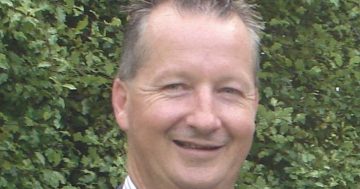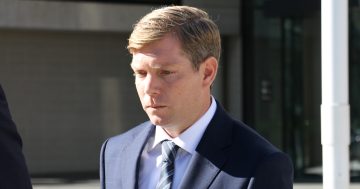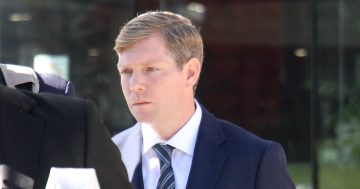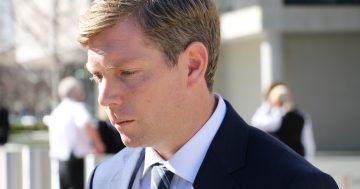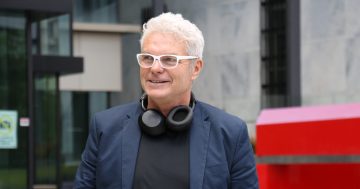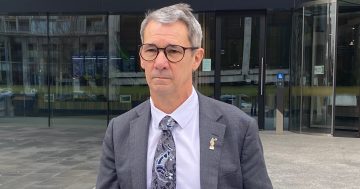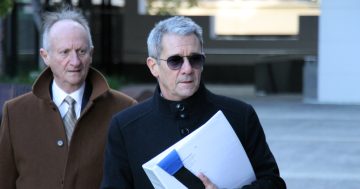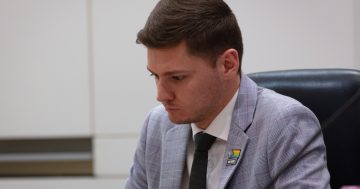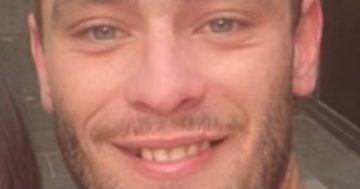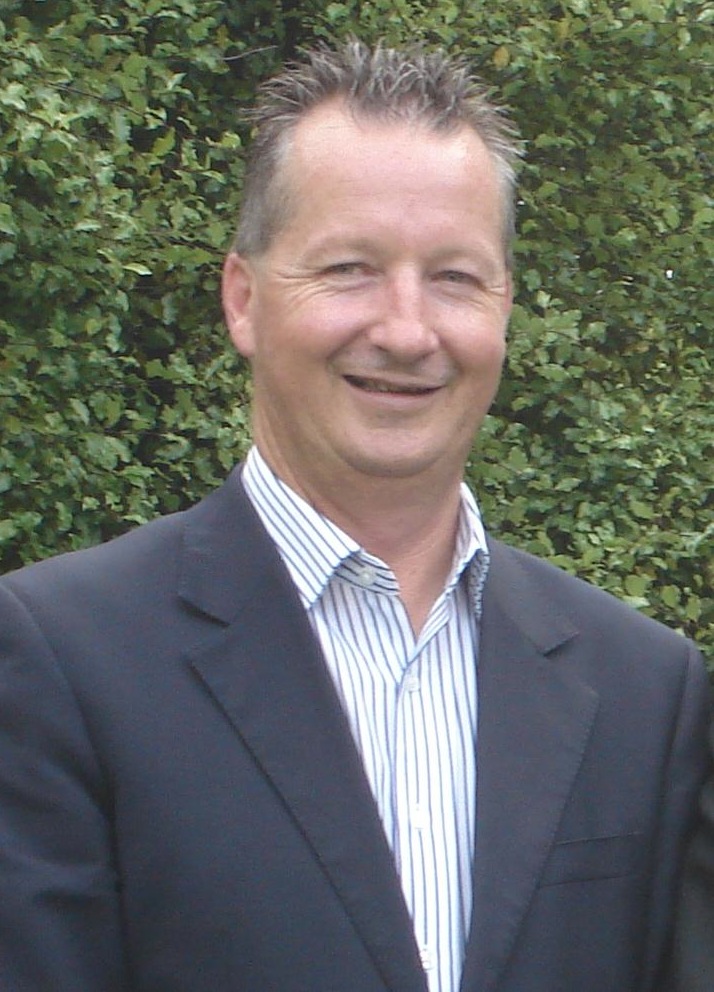
Canberra’s Peter Keeley, 56, was found dead at Broulee on 2 February 2020. Photo: NSW Police.
The family of Peter Keeley, who died on the South Coast after being kidnapped and beaten by three 17-year-olds, has been barred from telling the court about the impact of the crime.
One of the teens lured the 56-year-old to Broulee over the dating app Grindr before he was assaulted, tied up, dragged into the bush and left on 2 February 2020. He was found there, dead, later that day.
The barristers for the teens objected to two victim impact statements from Mr Keeley’s brother, as well as his former partner and mother to his three children, from being tendered to the NSW Supreme Court in a sentencing hearing on Wednesday (24 August).
They said there was no basis for the statements to be in the evidence under the relevant legislation.
Crown Prosecutor Nerissa Keay argued Mr Keeley, a Canberra real estate agent, was incapable of giving his own statement because he was dead, but his family could on his behalf.
“Incapacity simply must include the fact he is deceased and cannot speak for himself,” she said.
Mr Keeley’s family felt strongly about speaking on his behalf and letting people know “there is more to him than has been said in the course of the trial”.
But Justice Michael Walton said, “regrettably”, the legislation did not allow for statements from representatives of the main victim to be read as victim impact statements.
However, he said he would receive the family’s statements to read himself to assist him in expressing his sympathies to them, but then return the statements to the Crown.
“I am sympathetic, as you would have heard, as to your circumstances,” Justice Walton told Mr Keeley’s brother and former partner as they were both present in the courtroom.
“However, I am bound by the legislation created by the parliament of this state.”
In Ms Keay’s sentencing submissions, she argued while it was a joint attack and all three teens shared responsibility, the first teen did play the main role in luring Mr Keeley to the scene and also initiated the assault.
This teen told the author of a juvenile justice report Mr Keeley had been defending himself and he was hitting him hard in an attempt to “knock him out”.
Ms Keay said during the attack, Mr Keeley’s face had been in the ground, a gag was put on him, and his hands and ankles were taped together. He was also dragged and “left there alone”, she said.
“The experience for Mr Keeley must have been a very terrifying one,” she said.
“He was left and there was no attempt to alert the authorities. He was simply left in a remote bush area in a restrained position.”
The Supreme Court trial of the first and second teens heard they wanted to intimidate Mr Keeley because they were under the unsubstantiated belief he was a paedophile.
Ms Keay said, “it is not for three young men to inflict this sort of violence on a person because of a perception of that person”, and the courts had made attempts to discourage this sort of “vigilante justice”.
The first teen had started the conversation with Mr Keeley over Grindr as Ms Keay said it was the teen who sent the initial message to his future victim.
Carolyn Davenport SC, appearing for the second teen, said there was no evidence of her now-20-year-old client’s involvement until the day of the attack and he was “a follower, not a leader”.
He has been accepted to study at the University of Canberra and Ms Davenport said it would be in his interests to move away from the South Coast as many people there would know he was involved in this crime even though his name hasn’t been published.
Richard Wilson, appearing for the third teen, also argued the court could not find his client was involved before the three “childhood friends” met up at his house on the day of the attack.
However, Clive Steirn SC, representing the first teen, argued all three should be treated equally on sentencing and alleged all were involved shortly before his client began talking to Mr Keeley over Grindr.
He argued there was “no way” his client would have committed to inviting Mr Keeley down from Canberra and meeting him by himself and would not have done what he did unless he knew the other two would help him.
Mr Steirn did say the teen had accepted his actions, reading out quotes the boy made after he was initially confronted by the allegations.
“It was an accident. I didn’t mean to, Dad. I didn’t want it to happen,” the teen said.
After facing a Supreme Court judge-alone trial earlier this year, the first and second teens were acquitted of murder, with Justice Walton finding it was likely Mr Keeley died from the methylamphetamine in his system.
The third teen later had the murder case against him dropped.
However, all three pleaded guilty to an aggravated kidnapping charge, admitting they detained Mr Keeley and assaulted him.
Justice Walton did not set a sentencing date but will hand it down in the future.












